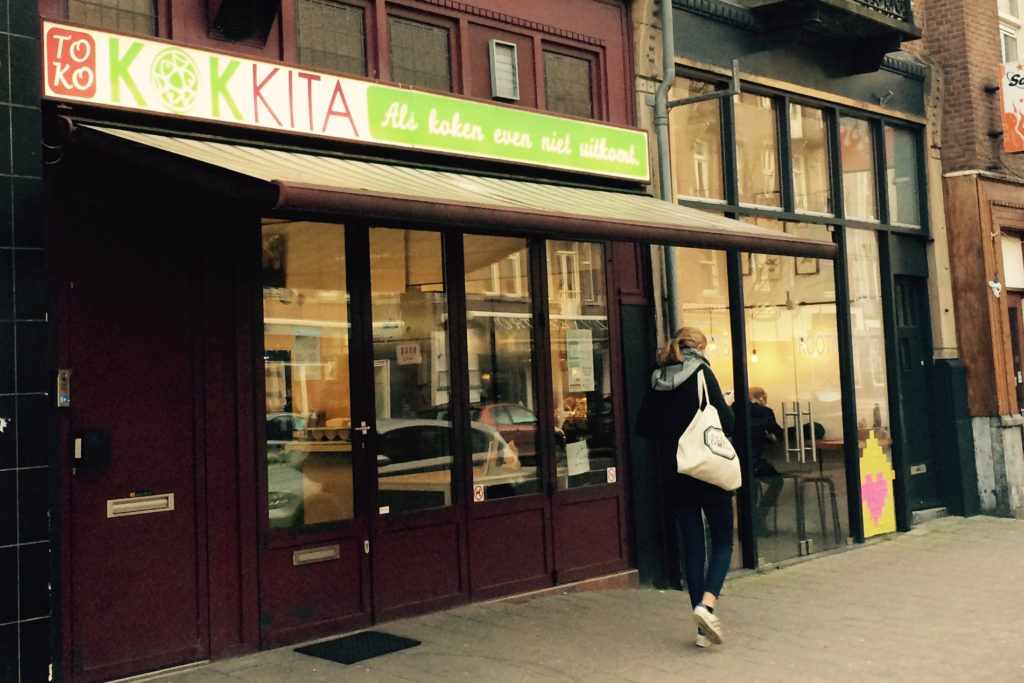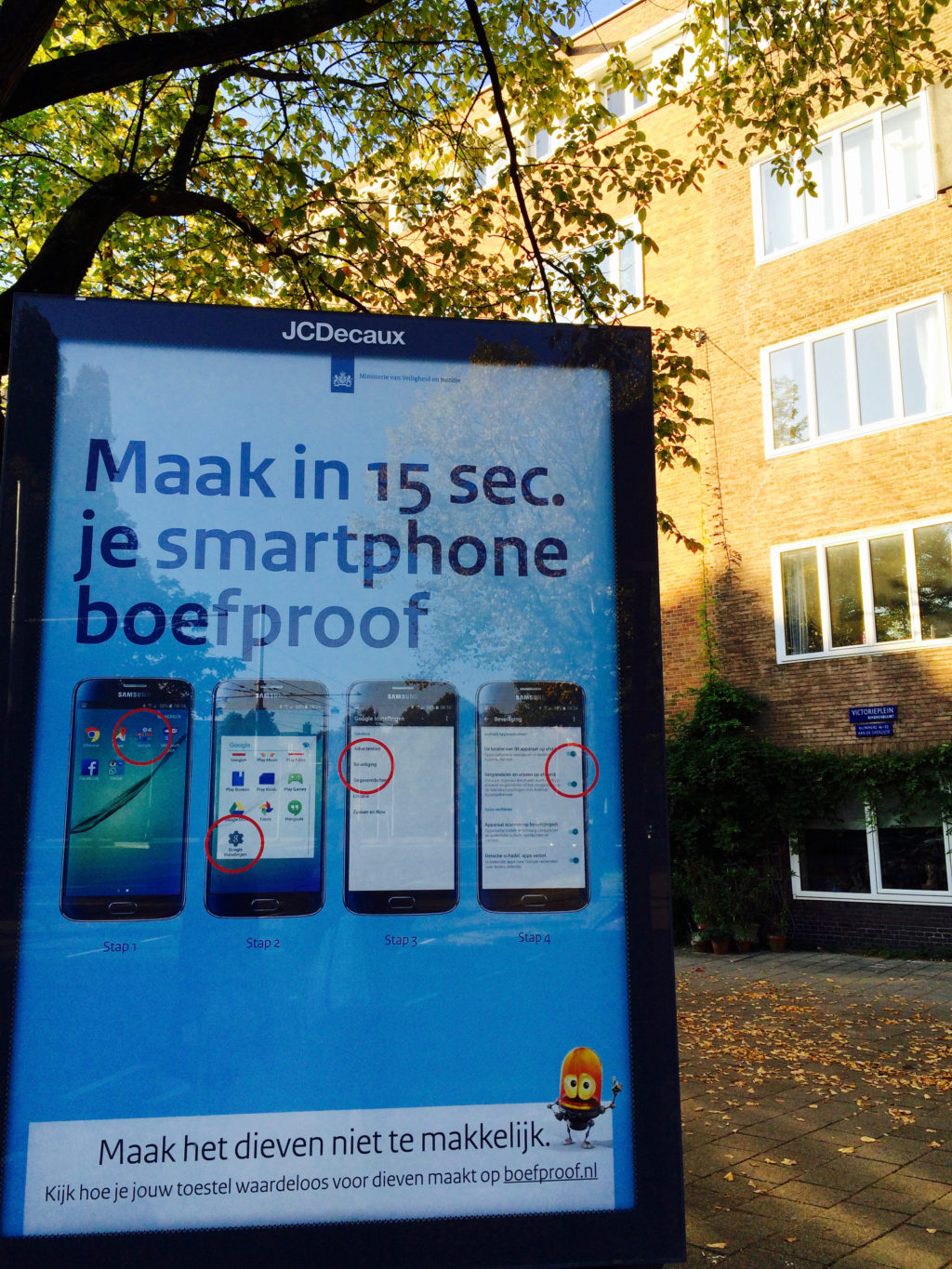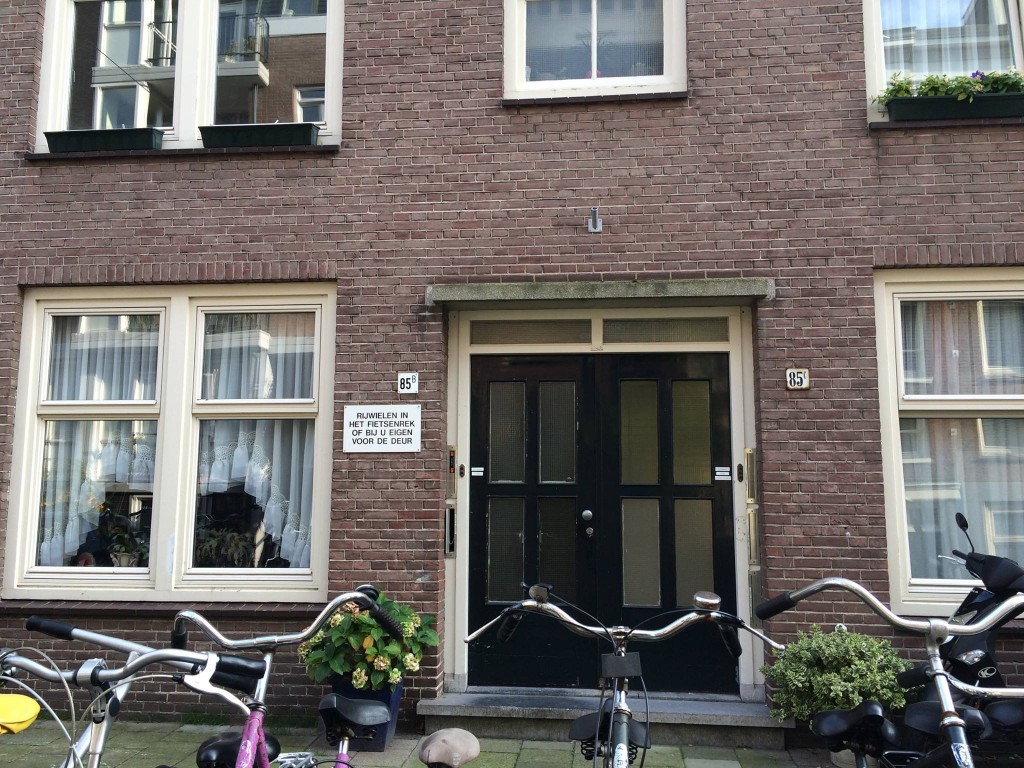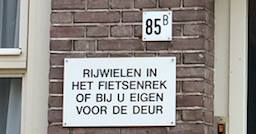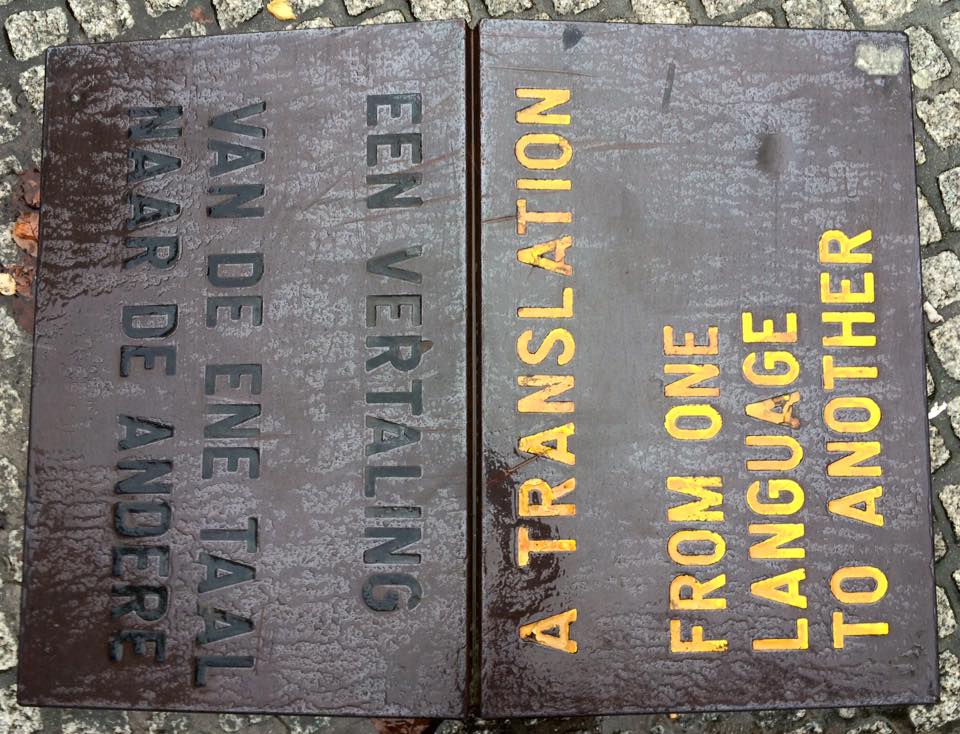Typical translations of the Dutch word ‘grond’ (that which you are standing on) are ‘ground’, ‘floor’ or ‘earth’. It can also mean ‘land’ or ‘property’ as in ‘eigen grond’: private land/property, see the photo.
The photo shows a note put up by an angry home owner who has too many Pokémon trainers trespassing in his garden. It turns out to be a very suitable note to expand your Dutch idiom and to learn something about Dutch modern culture, so I have translated it below for those interested 🙂

Photo from Facebook post by FunX
Translation:
[Explanatory notes between brackets.]
“This garden is on private land and hence forbidden for dorks looking for Pokémons”
[The verb ‘liggen’ would be more suitable instead of ‘staan’ given it is a garden and not a house]
[‘Verboden toegang’ literally translates as ‘forbidden entrance’]
“Do something useful with your life and get the hell out of my garden!”
[Read more on ‘nuttig’ and ‘oprotten’ here:
http://www.dwotd.nl/2010/09/812-nut.html
http://www.dwotd.nl/2006/09/39-oprotten.html]
“In any case this (whole) Pokémon fad is (really) the stupidest I have ever seen.”
[‘Sowieso’ is taken from German and means something like ‘in any case / anyhow’. A ‘rage’ is a ‘fad’; it is pronounced with ‘zj’ sound instead of ‘g’.]
[In Dutch there is a super-superlative degree that you form with ‘aller’: allerbeste, allerliefste, allerdomste. Of course it is completely redundant.]
“And believe me, I have already seen lots of dumb sh*t in my life.”
[The Dutch like to use the noun ’sh*t’ for stupid stuff, bad quality etc.]
The author then lists what he/she believes to be ‘domme sh*t’. Based on the topics, I believe the author to be in his or her mid-40s. It is a nice overview containing fundamental elements of Dutch culture 😉
– Prijzenslag met Hans Kazan: Dutch version of the Price is Right https://nl.wikipedia.org/wiki/Prijzenslag. Hans Kazàn is a famous Dutch magician.
– Vengaboys: when you say 90s music in NL, you say Vengaboys https://en.wikipedia.org/wiki/Vengaboys
– Buckler Bier: alcohol-free beer by Heineken, however no longer available in NL. Some say it is due to Dutch comic Youp van ’t Hek completely trashing the brand shortly after its release in 1988 https://www.youtube.com/watch?v=miDSDyLN_88
– GTST: Dutch soap Goede Tijden Slechte Tijden (running since 1990)
– Emile Ratelband: infamous self-proclaimed positivity guru who coined the catchword ‘Tsjakka!’ https://www.youtube.com/watch?v=hO6aXNmZxaA
– Premier Balkenende: former prime minister Jan Peter Balkenende https://en.wikipedia.org/wiki/Jan_Peter_Balkenende
– Oh Oh Cherso: infamous reality-tv show showing youth from The Hague going crazy in the Greek town Chersonisos (The title is a pun on the famous Dutch song ‘O O Den Haag’ https://www.youtube.com/watch?v=ptGJ8wzeGDE)
– Flippo’s: fad from the 90s; the goal was to collect so-called “flippo’s” that were included in bags of potato chips https://nl.wikipedia.org/wiki/Flippo
– Jodie Bernal: one hit wonder Jody Bernal. His song ‘Que sí, que no’ (2000) will haunt us forever https://nl.wikipedia.org/wiki/Jody_Bernal
The author then closes with:
“If you walk on for a bit, there is quite a nice pub around the corner.”
[‘Kroeg’ is another word for ‘bar’. Here ‘aardig’ does not mean friendly, but ‘nice/pleasant’. Together with the diminutive of ‘kroeg’ it translates as ‘quite a nice’.]
“Do me a favour. Go there, have a beer and think hard about the direction you want to take in life.”
[See http://www.dwotd.nl/2012/03/1006-doe-me-een-lol.html for an explanation on ‘Doe mij een lol.”]
[Literally the translation is: “Go there, take a beer, and then think again properly about where you want to go with your life.”]
For comments please see the original Facebook post.

